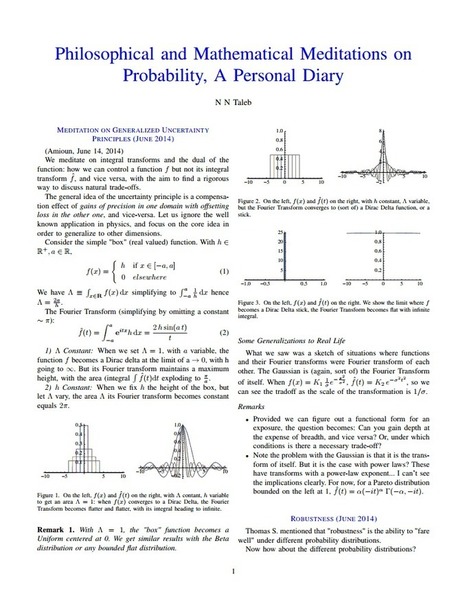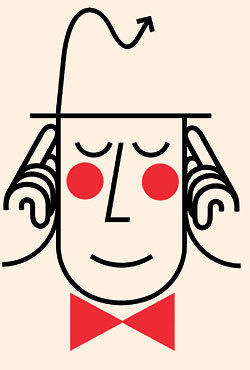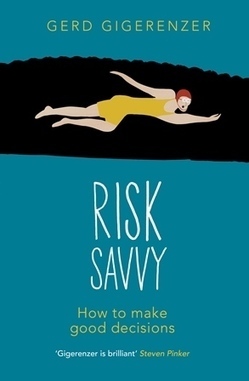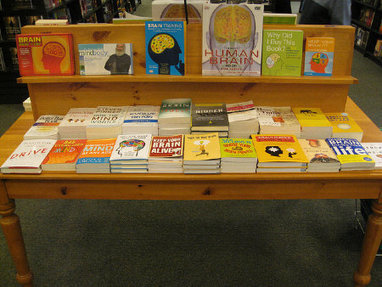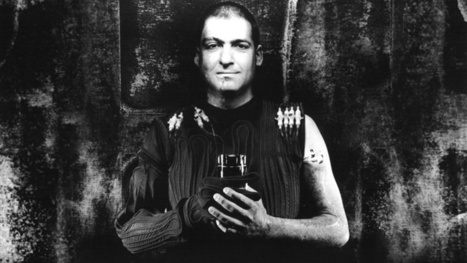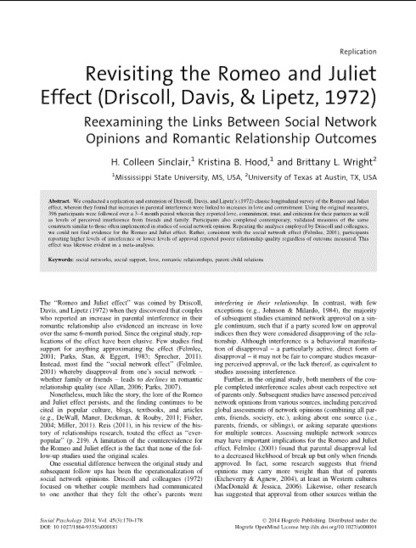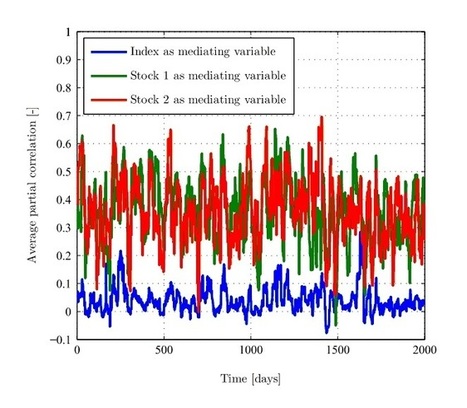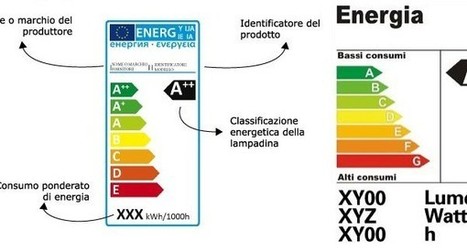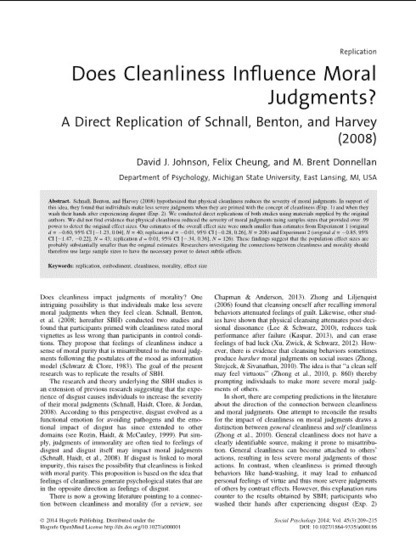 Your new post is loading...
 Your new post is loading...
Dan Ariely, the James B. Duke Professor of Psychology and Behavioral Economics at Duke University, is known for his entertaining TED talks, bestselling books, and provocative research on the psychology behind everyday interactions. He currently provides an academic perspective on topics ranging fromawkward silences to fear of squirrels in his Wall Street JournalQ&A column “Ask Ariely.” On top of all these extra-scholastic activities, he manages to be a prolific researcher, having published more than 300 papers on topics like guilt, altruism, and fairness. You’ve expressed a personal mission to describe research “in plain language.” Where does this goal come from, and where do you see the greatest need for accessible communication of research?
A company called Urban Engines works with city transit authorities to figure out better ways to use existing infrastructure and to craft incentives to change people’s commuting habits and reduce congestion.
Morality is a pervasive aspect of human nature across all cultures, and neuroscience investigations are necessary for identifying what computational mechanisms underpin moral cognition. The current study used high-density ERPs to examine how moral evaluations are mediated by automatic and controlled processes as well as how quickly information and causal-intentional representations can be extracted when viewing morally laden behavior. The study also explored the extent to which individual dispositions in affective and cognitive empathy as well as justice sensitivity influence the encoding of moral valence when healthy participants make moral judgments about prosocial (interpersonal assistance) and antisocial (interpersonal harm) actions. Moral judgment differences were reflected in differential amplitudes for components associated with cognitive appraisal (LPP) as well as early components associated with emotional salience (N1 and N2). Moreover, source estimation was performed to indicate potential neural generators. A posterior-to-anterior shift was observed, with current density peaks first in right inferior parietal cortex (at the temporoparietal junction), then later in medial prefrontal cortex. Cognitive empathy scores predicted behavioral ratings of blame as well as differential amplitudes in LPP and component activity at posterior sites. Overall, this study offers important insights into the temporal unfolding of moral evaluations, including when in time individual differences in empathy influence neural encoding of moral valence.
In the 2001 issue of the International Journal of Forecasting, an economist from the International Monetary Fund, Prakash Loungani, published a survey of the accuracy of economic forecasts throughout the 1990s. He reached two conclusions. The first was that forecasts are all much the same. There was little to choose between those produced by the IMF and the World Bank, and those from private sector forecasters. The second conclusion was that the predictive record of economists was terrible. Loungani wrote: “The record of failure to predict recessions is virtually unblemished.”
Surprised I missed this last year. This year's Nobel laureate Robert Shiller introduces Daniel Kahneman for his talk on "A Psychological Perspective on Rationality"
In his new book, Risk Savvy, Psychologist Gerd Gigerenzer uses this ‘Turkey Illusion’ to challenge our reliance on data. Imagine you’re a turkey. As a turkey you don’t know about Thanksgiving or Christmas. Every day a farmer brings you food, so despite your fear on day one, each day’s experience builds your certainty that visits from the farmer are a good thing. Your assumed probability of survival increases every day, until, at the point of highest certainty, you become dead meat. Gigerenzer asserts that intuition and heuristics (i.e. mental rules of thumb) can often trump data, even in areas like financial forecasting. He draws turkey parallels with the financial crisis in 2008, arguing that updating probabilities based on experience isn’t a bad model per se, but in situations with unknown risks (e.g. Thanksgiving), it can create ‘illusory certainty’ and catch us out.
Un test neurocognitivo rivela che le donne sanno identificare i prodotti di successo in un solo secondo. La prova è in uno studio condotto in collaborazione con un’azienda di calzature austriaca. Il team di neuroscienziati guidato da Baldo ha monitorato le reazioni del cervello di quaranta donne alla visione di una collezione che includeva sia scarpe di successo sia scarpe che si erano rilevate un flop in termine di vendite. I risultati hanno dimostrano chiaramente come non solo la decisione di acquisto venga presa in un tempo rapidissimo, ma anche che è possibile prevedere il successo di una scarpa con un livello di accuratezza fino a oggi solo immaginabile. Infatti, la risposta del cervello delle donne sottoposte al test ha permesso di determinare i modelli di successo sul mercato con una precisione del 77%. Curiosamente, le scarpe in grado di suscitare nelle donne le emozioni più positive sono anche quelle che riscuoteranno maggior successo in termini di vendita. In un test analogo, ma eseguito solo tramite questionari che permettevano di indicare l’intenzione di acquisto, l’accuratezza della predizione si è fermata al 60%.
Neuroscience studies a very complex system: the brain. Much has been learned through formal research of the brain, especially due to the advent of brain imaging technologies which afford increased breadth of research using human subjects. That said, what we know remains very limited, given the complexities of both the organ and the practical application of research findings. However, we can point to six findings that give us new and profound insight into our grey matter.
Via Emre Erdogan
Behavioural Exchange 2014 is the world’s first global public policy behavioural insights conference, bringing expert academics and practitioners from around the world to Sydney from 2-3 June 2014. Behavioural approaches are really about “restoring common sense to economics”. These were the provocative words of Richard Thaler – Professor Behavioral Science and Economics at the University of Chicago Booth School of Business and co-author of Nudge – while speaking via video link atBX2014, the world’s first public policy behavioural insights conference, which concluded in Sydney on 3 June. The interplay between orthodox economics, psychology, and so-called ‘common sense’ was a recurring theme of the two-day conference, which brought together leading academics and practitioners from across the world to discuss behavioural innovations in public policy. The conference included talks from many of the world’s leading thinkers in behavioural economics and policy making. Alongside Richard Thaler was his co-author,Cass Sunstein, and Professors Max Bazerman, Iris Bohnet, David Laibson, Michael Norton, and Michael Hiscox from Harvard’s Behavioral Insights Group. They were joined by those at the policy making end of the spectrum, with BIT Chief Executive, Dr David Halpern, Dr Maya Shankar from the White House, and Dr Thia Jang Ping and Mr Donald Low from the Government of Singapore. Reflecting Australia’s growing interest in applying behavioural approaches to public policy, BX2014 also brought together senior public servants from the Government of New South Wales , as well as representatives from private sector firms, such as Facebook. The conference covered a range of topics, from the merits of design thinking and the hope of big data, to the importance of RCTs in driving evidence-based decision-making. But it was perhaps the ethos that underpins behaviourally-informed policy that anchored the discussions. Participants challenged speakers on the centrality of ethics and transparency in designing nudges, and the need to elevate a culture of experimentation in the public sector. Speakers also highlighted that the empirically-focussed approach to public policy that behavioural insights demands requires humility: we have to accept that context is critical to the success of any intervention, so we must admit that we don’t really know what will work until we have tried it and tested it to a high degree of scientific rigour. This way, by taking account of sometimes seemingly trivial details of implementation, public policy can be delivered better and with greater efficiency.
In this exclusive interview, behavioral economist Dan Ariely explains why smartphone apps could be the perfect solution to staying motivated, and why most app developers simply aren't getting it right. Productivity apps promise to make us more efficient, better focused, and of course, highly organized. But how do they do it? Do they work, and if so, how? How do productivity apps influence us so that we accomplish the things we really want to accomplish? Dan Ariely is a behavioral economist—emphasis on "behavioral"—who's interested in how technology can affect our actions. Much of his research looks at why people so often fail to act in their own best interest. More formally speaking, he is the James B. Duke Professor of Psychology and Behavioral Economics at Duke University, and a founding member of the delightfully, yet appropriately named Center for Advanced Hindsight. His first two popular books, The Upside of Irrationality and Predictably Irrational, explore many of his experiments and findings about irrational behavior, including rewards-based motivation. I spoke with Ariely recently about how technology, and smartphone apps in particular, can keep us motivated and help us procrastinate less.
Design is about solving problems, and great design is about solving hard problems successfully. At ideas42 we’ve found that incorporating insights from behavioral economics at every stage of the design process can yield amazing results – whether solving problems in health, energy usage, or economic development.We’re just wrapping up a project looking at the design of microsavings products in the Philippines, working with Grameen Foundation and CARD Bank. Our re-designed products had significant positive effects in a randomized controlled trial, and this post will take you through our design process and share some of the insights we gained during the course of this project.
Abstract We conducted a replication and extension of Driscoll, Davis, and Lipetz’s (1972) classic longitudinal survey of the Romeo and Juliet effect, wherein they found that increases in parental interference were linked to increases in love and commitment. Using the original measures, 396 participants were followed over a 3–4 month period wherein they reported love, commitment, trust, and criticism for their partners as well as levels of perceived interference from friends and family. Participants also completed contemporary, validated measures of the same constructs similar to those often implemented in studies of social network opinion. Repeating the analyses employed by Driscoll and colleagues, we could not find evidence for the Romeo and Juliet effect. Rather, consistent with the social network effect (Felmlee, 2001), participants reporting higher levels of interference or lower levels of approval reported poorer relationship quality regardless of outcome measured. This effect was likewise evident in a meta-analysis.
|
Abstract: This chapter establishes how the regulatory process should change in order to bring out and use evidence from cognitive sciences. It further discusses the impact of cognitive sciences on the regulatory toolkit, positing that, on the one hand, traditional tools should be rethought about; and, on the other, that the regulatory toolkit should be enriched by two more strategies: empowerment and nudging (where the first eases the overcoming of cognitive and behavioural limitations, while the second exploits them).
Abstract: The “wisdom of crowds” refers to the phenomenon that aggregated predictions from a large group of people can rival or even beat the accuracy of experts. In domains with substantial stochastic elements, such as stock picking, crowd strategies (e.g. indexing) are difficult to beat. However, in domains in which some crowd members have demonstrably more skill than others, smart sub-crowds could possibly outperform the whole. The central question this work addresses is whether such smart subsets of a crowd can be identified a priori in a large-scale prediction contest that has substantial skill and luck components. We study this question with data obtained from fantasy soccer, a game in which millions of people choose professional players from the English Premier League to be on their fantasy soccer teams. The better the professional players do in real life games, the more points fantasy teams earn. Fantasy soccer is ideally suited to this investigation because it comprises millions of individual-level, within-subject predictions, past performance indicators, and the ability to test the effectiveness of arbitrary player-selection strategies. We find that smaller, smarter crowds can be identified in advance and that they beat the wisdom of the larger crowd. We also show that many players would do better by simply imitating the strategy of a player who has done well in the past. Finally, we provide a theoretical model that explains the results we see from our empirical analyses
Although we may like to believe that our rational side ("Homo economicus") dominates when it comes to financial decision-making, a new study shows that herding behavior can explain several features of stock markets that are not explained very well by more rational factors. Understanding the human emotional side to investing could even lead to human-guided trading algorithms and improved market stability. The researchers, adjunct researcher Yoash Shapira, PhD student Yonatan Berman, and Professor Eshel Ben-Jacob at Tel-Aviv University in Israel, have published a paper on the influence of herding behavior in stock markets in a recent issue of the New Journal of Physics.
The past decade has been a triumph for behavioural economics...[which] is one of the hottest ideas in public policy....Yet, as with any success story, the backlash has begun. Critics argue that the field is overhyped, trivial, unreliable, a smokescreen for bad policy, an intellectual dead-end – or possibly all of the above. Is behavioural economics doomed to reflect the limitations of its intellectual parents, psychology and economics? Or can it build on their strengths and offer a powerful set of tools for policy makers and academics alike?
This is an exciting time to be applying behavioral economics to development practice and policy. In fact, much of what is discussed in this video is what I am applying to my work in Kenya with churches. This video explains why designing programs and policies is just as important, if not more important, than what the program or policy ultimately targets. Of course you could just read Thinking Fast and Slow, Poor Economics, Scarcity, Nudge, and a forthcoming essay written by yours truly, but this video will take much less time.
Via Emre Erdogan
Perché le nuove etichette non aiutano il consumatore a fare la scelta migliore per sé e per l'ambiente- Alla fine dei conti, un consumatore posto di fronte alle nuove etichette riuscirà correttamente a individuare i prodotti maggiormente virtuosi dal punto di vista energetico, ma porrà meno importanza nell’acquistare un prodotto A++ rispetto a un A+, magari finendo per scegliere quest’ultimo e andando nella direzione opposta all’obiettivo dell’etichetta. Scopo di quest’ultima è, infatti, aumentare la salienza dei prodotti migliori per l’ambiente, non renderla indifferente rispetto alle classi inferiori. La lezione che possiamo trarre è mettere in discussione il tradizionale caposaldo che guida gli odierni interventi nel campo dell’ecosostenibilità, ovvero l’importanza data alla distribuzione di informazione. Se si intende indirizzare le scelte dei consumatori verso comportamenti pro-ambiente, come l’acquisto di prodotti tecnologici a basso consumo energetico, sembra un’idea di buon senso mostrare quali benefici si possano ottenere tramite una decisione virtuosa, e a fronte di quali costi, come l’etichetta energetica fa. In generale, le campagne tradizionali di sensibilizzazione nell’ambito dell’ecosostenibilità assumono il principio per cui le persone sono capaci di scegliere consapevolmente e per i loro migliori fini, una volta si siano fornite loro tutte le informazioni necessarie. Eppure il caso della recente introduzione delle etichette energetiche mostra chiaramente che agire solo sul lato dell’informazione trascurando i fattori comportamentali, l’architetture della scelta e la sperimentazione può sortire effetti addirittura opposti a quelli auspicati. Sarà utile imparare la lezione al più presto.
When we understand human behavior, we can build and sell products that change lives.Defining Key BehaviorsPath of Least ResistancePower of EmotionSocial ProofLoss AversionConcretenessRelativityIncentivesPricing
In the 1950s, two scientists at McGill University accidentally discovered an area of the rodent brain now known as ‘the pleasure centre’. Given the opportunity to stimulate their own pleasure centres via a lever-activated electrical current, a group of rats pressed the lever over and over again, going without food and sleep, until many of them died from exhaustion. Most humans are a little more complex than rats but we are still largely motivated by what makes us feel good, especially in relation to purchasing choices. In light of this, many major corporations are taking a special interest in understanding customers through the mechanics of the human brain. This is the emerging but fast-growing field of ‘neuromarketing’, which uses brain-tracking tools to determine why people prefer some products over others.
T About 18 months ago, the NSW Premier's department quietly set up a small team with a unique brief. It was dubbed the "nudge" unit because its goal was to influence people's behaviour using insights drawn from economics and psychology rather than regulation and red tape. The plan drew on the relatively new discipline of behavioural economics that has challenged traditional assumptions about how consumers, and citizens, behave. Behavioural economists have drawn attention to human biases that cause people to make choices that seem contrary to their best interests. The theory is that those same biases - such as shame, the desire to conform and even vanity - can also be used to nudge people to make superior choices that save governments and citizens time and money. The approach was made popular by University of Chicago professor Richard Thaler, who co-wrote the 2008 book Nudge: Improving Decisions about Health, Wealth and Happiness. The NSW government's new nudge team - or the Behavioural Insights Unit as it's officially known - began a series of trials to find out if the strategy would work in NSW.
I ratti mostrano rimpianto quando le loro scelte non danno esiti soddisfacenti: lo dimostra una ricerca di laboratorio in cui i roditori dovevano attendere un certo tempo per ricevere cibi più o meno buoni. Il risultato rappresenta la prima prova sperimentale dell’esistenza di questa reazione emotiva, in grado di condizionare il comportamento futuro, in mammiferi non umani, confermata anche da analisi dell'attività cerebrale dei ratti
Abstract Schnall, Benton, and Harvey (2008) hypothesized that physical cleanliness reduces the severity of moral judgments. In support of this idea, they found that individuals make less severe judgments when they are primed with the concept of cleanliness (Exp. 1) and when they wash their hands after experiencing disgust (Exp. 2). We conducted direct replications of both studies using materials supplied by the original authors. We did not find evidence that physical cleanliness reduced the severity of moral judgments using samples sizes that provided over .99 power to detect the original effect sizes. Our estimates of the overall effect size were much smaller than estimates from Experiment 1 (original d = −0.60, 95% CI [−1.23, 0.04], N = 40; replication d = −0.01, 95% CI [−0.28, 0.26], N = 208) and Experiment 2 (original d = −0.85, 95% CI [−1.47, −0.22], N = 43; replication d = 0.01, 95% CI [−.34, 0.36], N = 126). These findings suggest that the population effect sizes are probably substantially smaller than the original estimates. Researchers investigating the connections between cleanliness and morality should therefore use large sample sizes to have the necessary power to detect subtle effects.
I recently saw an old friend for the first time in many years. We had been Ph.D. students at the same time, both studying science, although in different areas. She later dropped out of graduate school, went to Harvard Law School and is now a senior lawyer for a major environmental organization. At some point, the conversation turned to why she had left graduate school. To my utter astonishment, she said it was because it made her feel stupid. After a couple of years of feeling stupid every day, she was ready to do something else. I had thought of her as one of the brightest people I knew and her subsequent career supports that view. What she said bothered me. I kept thinking about it; sometime the next day, it hit me. Science makes me feel stupid too. It's just that I've gotten used to it. So used to it, in fact, that I actively seek out new opportunities to feel stupid. I wouldn't know what to do without that feeling. I even think it's supposed to be this way.
|



 Your new post is loading...
Your new post is loading...




